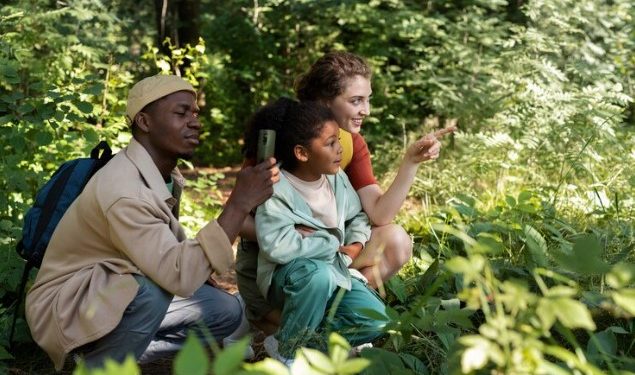Embarking on a mission trip to Côte d’Ivoire offers a unique opportunity for volunteers to engage with a diverse cultural tapestry while contributing to various humanitarian and spiritual initiatives. Located on the West African coast, Côte d’Ivoire presents a landscape where tradition meets modernity, and where the vibrant faith of local communities plays a pivotal role in daily life. Missionaries and volunteers traveling to this African nation participate in a range of activities, from community development projects to evangelistic outreach programs.
Understanding the country’s cultural and spiritual nuances is crucial for the effectiveness and sensitivity of the mission work in Côte d’Ivoire. Volunteers are often faced with a variety of challenges, including language barriers, cultural differences, and the complexities of interfaith dialogues. Preparation for these journeys involves not only logistical planning but also cultural education to ensure meaningful and respectful engagement. The work conducted during these missions transcends mere travel, as it often leads to lasting impacts on the volunteers and the communities they serve.
Key Takeaways
- Mission trips to Côte d’Ivoire integrate humanitarian aid with cultural immersion and spiritual ministry.
- Effective mission work requires a deep understanding of the local culture and beliefs.
- Thoughtful preparation is pivotal to the success and mutual respect in mission endeavors.
Understanding the Cultural and Spiritual Landscape
Exploring Côte d’Ivoire’s cultural and spiritual landscape unveils a diverse society where faith and tradition lay the foundations of community life. The influences of religion and cultural practices run deeply through the Ivorian way of life, shaping everything from social behavior to language.
The Role of Religion in Côte d’Ivoire
Religion in Côte d’Ivoire is a tapestry of beliefs with Christianity, Islam, and traditional faiths playing significant roles. Approximately 12% of Ivorians are Christian, with Catholicism being a prominent denomination. The Islamic faith is practiced by roughly 25% of the population, with many Muslim communities coexisting peacefully alongside their Christian counterparts. However, a majority of about 63% still adhere to traditional African religions that hugely influence their lifestyle and moral values.
Cultural Norms and Practices
Ivorian culture is a rich blend of ethnic diversity, with family and community standing as the central units of social structure. The significance of ‘family’ extends beyond immediate relatives, fostering a sense of unity and interdependence. Traditional Ivorian societies are characterized by various norms and practices that revolve around respect for elders and nature, as exemplified by the protection of sacred forests in Côte d’Ivoire. These woodlands are revered as dwelling places of spirits and ancestors, essential to the community’s spiritual fidelity and identity.
Languages Spoken and Communication
With French as the official language, Côte d’Ivoire boasts a linguistic diversity that includes approximately 78 local languages. Communication is often informal and indirect, reflecting the importance of not causing embarrassment or offense. While French is used for formal transactions and education, local languages such as Baoulé, Dioula, and Bété carry the essence of cultural expression and identity. The choice of language in a conversation can reflect the social hierarchy, reinforce relationships, and ensure respectful interaction among Ivorians.
Preparation for the Mission Trip
Adequate preparation is crucial for a successful mission trip to Abidjan, Côte d’Ivoire. It not only ensures personal safety and health but also smoothens the travel process for all volunteers involved.
Logistical Arrangements and Travel Tips
Volunteers should secure travel arrangements well in advance, considering the potential for discounted humanitarian airfares provided for such missions. It’s important to be aware of visa requirements, and to plan the arrival and departure dates with the mission’s schedule in mind. Coordination with the mission’s office is essential to ensure alignment with the trip’s objectives and activities.
Health and Safety Precautions
Health and safety are paramount for volunteers traveling to Abidjan. They should consult a travel doctor for necessary vaccinations and health advice. It is also critical for them to understand and adhere to safety guidelines specific to Côte d’Ivoire. Carrying a basic medical kit and having a health insurance are prudent measures.
Packing Essentials for the Trip
When packing for Abidjan, one must consider the tropical climate and culturally appropriate attire. Volunteers should include lightweight, breathable clothes while being mindful of modesty standards. Essential items also include a sturdy pair of shoes, sunscreen, insect repellent, and personal hygiene products. For organized packing, volunteers can reference tips on packing essentials to ensure they bring all necessary items without overpacking.
Engagement and Mission Activities
Engagement and mission activities in Côte d’Ivoire encompass a variety of efforts aimed at community development, education advancement, and spiritual growth. These endeavors are crucial in fostering transformative experiences both for the Ivorian communities and the volunteers involved.
Community Outreach and Service Projects
Community outreach initiatives in Côte d’Ivoire are fundamental to the mission of many international groups. Volunteers engage in diverse service projects, from constructing basic infrastructure to providing healthcare services. These projects not only meet tangible needs but also facilitate cross-cultural exchanges and deepen volunteers’ understanding of West Africa. Outreach programs frequently collaborate with local congregations, leveraging church membership to address community issues effectively.
Educational Programs and Support
Education in Côte d’Ivoire is a pivotal area of support for missionaries and volunteers. Assistance ranges from building schools to offering supplemental programs that enhance learning opportunities for the youth. By prioritizing education, mission organizations help to pave the way for a brighter future, with a focus on literacy, skill development, and moral guidance rooted in the gospel. Many seek to volunteer with mission organizations to contribute their skills and knowledge to these impactful educational efforts.
Partnerships with Local Churches and Organizations
Forging partnerships with local churches and organizations is essential for sustainable mission work in Ivory Coast. These partnerships can lead to a more profound impact within communities, as they draw on the insights and leadership of those who know the cultural landscape best. Such collaborations enable a shared vision in which visiting missions support local churches in their ongoing ministry work, ensuring continuity and relevance in community engagement. Additionally, these partnerships often foster connections between Ivorian congregations and broader global networks, opening doors for mutual learning and support.















